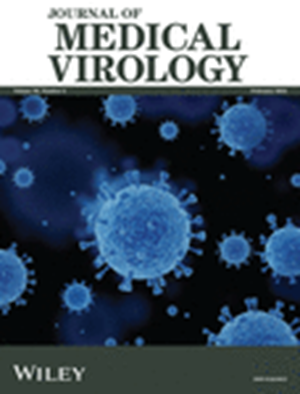Plasma Proteomic Profiles of Pediatric Patients With Human Herpesvirus 6B Encephalitis Following Umbilical Cord Blood Transplantation
Abstract
Human herpesvirus 6B (HHV-6B) encephalitis is a rare but severe complication of hematopoietic cell transplantation. This study investigated the pathogenesis of HHV-6B encephalitis by comparing plasma proteomic profiles of four pediatric patients with HHV-6B encephalitis to three with asymptomatic HHV-6B reactivation following umbilical cord blood transplantation (UCBT). Plasma proteomic profiling was conducted using liquid chromatography-mass spectrometry. Overall, 260 proteins were identified and quantified in plasma samples. At the onset of HHV-6B encephalitis and asymptomatic reactivation, 20 and 24 proteins, respectively, were significantly upregulated compared to their respective pre-onset levels. Of these, 11 proteins were uniquely upregulated in HHV-6B encephalitis. S100-A9 and S100-A8 were the most and second-most upregulated proteins in HHV-6B encephalitis, respectively. Elevated plasma S100A8/A9 heterodimer levels were confirmed via enzyme-linked immunosorbent assay in three of the four patients with HHV-6B encephalitis. Pathway analysis identified neutrophil degranulation as the most enriched category among upregulated proteins in HHV-6B encephalitis. Additionally, proteins related to the protein-lipid complex remodeling pathway were more prominently upregulated in HHV-6B encephalitis than in asymptomatic reactivation. Proteomic analysis revealed distinct plasma protein profiles between HHV-6B encephalitis and asymptomatic HHV-6B reactivation in pediatric UCBT recipients. The inflammatory response mediated by S100A8/A9 proteins may play a critical role in the pathogenesis of HHV-6B encephalitis. These findings indicate that proteomic analysis may provide novel insights into the host response to HHV-6B reactivation and the subsequent development of HHV-6B encephalitis.

 求助内容:
求助内容: 应助结果提醒方式:
应助结果提醒方式:


